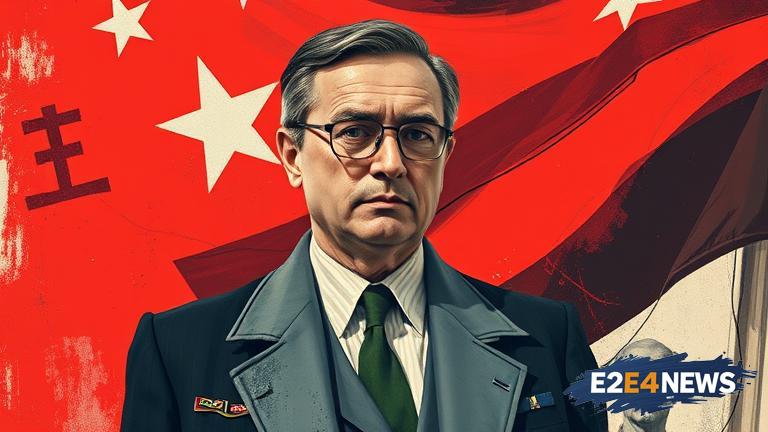The Cold War, a period of geopolitical tension between the United States and the Soviet Union, has left an indelible mark on the world. In his latest book, ‘The World of the Cold War’, Vladislav Zubok delves into the complexities of this era, exploring its origins, key events, and the lasting impact it has had on international relations. Zubok’s work is a testament to the enduring relevance of the Cold War, as its echoes continue to reverberate in today’s turbulent world. The book spans three decades, from the aftermath of World War II to the collapse of the Soviet Union, and provides a detailed examination of the major players, ideologies, and events that shaped the era. Zubok’s analysis is meticulous, drawing on a wealth of historical sources to create a rich tapestry of the period. He explores the role of key figures, such as Stalin, Kennedy, and Reagan, and the ways in which their policies and decisions contributed to the escalation of tensions. The book also examines the impact of the Cold War on various regions, including Europe, Asia, and Latin America, highlighting the ways in which local conflicts were often drawn into the larger struggle between the superpowers. One of the key strengths of Zubok’s work is its ability to balance breadth and depth, providing both a broad overview of the era and nuanced analysis of specific events and themes. The author’s writing is engaging and accessible, making the book an excellent resource for both scholars and general readers. Throughout the book, Zubok draws parallels between the Cold War and contemporary global issues, such as the rise of nationalism, the threat of nuclear war, and the challenges of international cooperation. These comparisons serve as a reminder that the legacy of the Cold War continues to shape our world, and that understanding this era is essential for navigating the complexities of modern geopolitics. The book has received widespread acclaim for its thorough research and insightful analysis, with many praising Zubok’s ability to shed new light on a well-trodden topic. As the world grapples with the challenges of the 21st century, ‘The World of the Cold War’ serves as a timely reminder of the importance of historical context and the need for nuanced understanding of the complex forces that shape our world. The Cold War may be over, but its impact continues to be felt, and Zubok’s work provides a valuable framework for understanding the ways in which this era continues to influence contemporary international relations. In conclusion, ‘The World of the Cold War’ is a masterful work of historical analysis, one that provides a comprehensive and engaging exploration of a pivotal era in modern history. As the world continues to evolve and new challenges emerge, Zubok’s book serves as a reminder of the enduring importance of understanding the past in order to navigate the present. The book’s themes and insights are likely to resonate with readers from a variety of backgrounds and disciplines, making it an essential resource for anyone interested in history, politics, or international relations. With its meticulous research, engaging writing, and nuanced analysis, ‘The World of the Cold War’ is a must-read for anyone seeking to understand the complexities of the modern world. The book’s publication is a significant event in the world of historical scholarship, and its impact is likely to be felt for years to come. As scholars and readers continue to grapple with the challenges of the 21st century, ‘The World of the Cold War’ provides a valuable framework for understanding the ways in which the past continues to shape our world. The book’s relevance extends far beyond the academic community, offering insights and perspectives that are essential for anyone seeking to navigate the complexities of modern geopolitics. In short, ‘The World of the Cold War’ is a landmark work of historical analysis, one that is sure to be widely read and studied for years to come.





